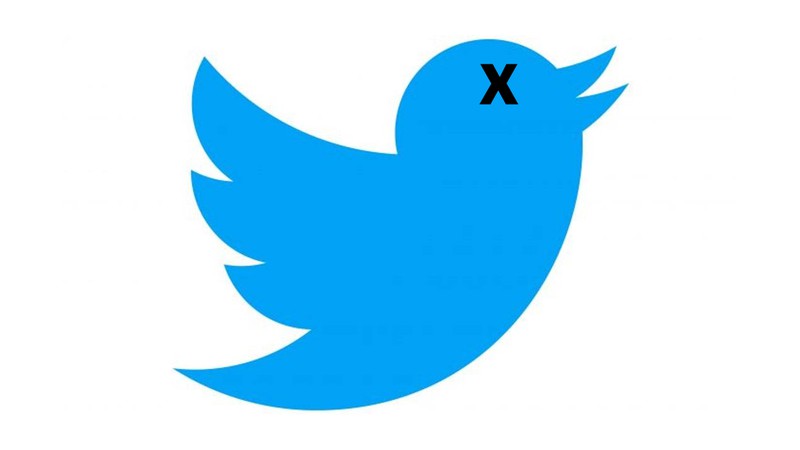2023 will go down in history as the year Big Social Media imploded, with Twitter leading the way. But a replacement might be taking shape...

Illustration by Chris Neklason.
"This parrot is no more! He has ceased to be! 'E's expired and gone to meet 'is maker! 'E's a stiff! Bereft of life, 'e rests in peace! If you hadn't nailed 'im to the perch 'e'd be pushing up the daisies! 'Is metabolic processes are now 'istory! 'E's off the twig! 'E's kicked the bucket, 'e's shuffled off 'is mortal coil, run down the curtain and joined the bleedin' choir invisible!! THIS IS AN EX-PARROT!!" - Monty Python
We were banned by Twitter back in March.
One day I was tweeting and retweeting information about downed trees, closed roads and rising rivers via our three Monterey Bay area accounts in Santa Cruz, Monterey and San Benito Counties, and the next day woke up to find myself unable to tweet or DM because our accounts had been "banned."
We initiated an appeal, got an automated email saying that a human would go over our case and get back to us in five-seven business days, and after several weeks, a final email saying the appeal was denied and the account ban was permanent.
Why? We broke the rules. Which rules? Twitter didn't say. It likely had to do with the fact that our accounts, run by humans tweeting and retweeting every day, also utilized the Twitter API—our automated news bots posted several times a day with CHP incident reports and CalTrans road closure notices. During the succession of storms in the early part of this year, our bots tweeted out flood alerts based on telemetry from NOAA and USGS monitoring stations.
Under new ownership, Twitter changed the rules about bots, killed the API and wiped out the third-party app ecosystem. So I suspect that it was our news bots that triggered their account-kill bots. Yes—bot-on-bot violence, because it's doubful any humans were involved in the process on their side, having all been fired.
And now Twitter is gone, replaced by X.

Being banned by Twitter has had zero negative effect on California Local's business model. The strange thing about Twitter is that while it was a good source of news and local information, it was not a good source of pageviews or clicks to news sites. Like most news media outlets, we've always found that Facebook and Google send us way more traffic. So our time investment in Twitter was never about getting clicks—it was about our mission and obligation to keeping our neighbors informed in real time about power outages, downed trees, closed roads and rivers reaching flood stage. Judging by the rapid increase in followers, likes and retweets that accompanied the winter storms, our neighbors found us useful.
I suspect bot-on-bot violence, because it's doubtful any humans were involved in the process, having all been fired.
I never bought into the "town square" storyline about Twitter—that it was a marketplace of ideas or a platform for civic discourse. Fun memes aren't useful ideas, and quips aren't civic discourse. For me, it was just a news feed and a way for people to coordinate around events, like evacuating a flood zone, protesting a dictatorship or marching against police violence. And now that's gone.
It's not just Twitter. The other social media platforms have become so deeply enshittified that they're mostly useless for sharing news or organizing action.
Threads is a hastily rolled-out market opportunity to gill-net fleeing Twitter users with a clone that is admittedly uninterested in promoting hard news or politics, and is better suited to building a media following and selling shape-wear. Ditto the “microblogging” Notes feature rolled out by Substack, substitute "thought-wear" for "shape-wear."
Not one of the remaining Big Social Media platforms is lining up to get folks to fill sandbags when the levees are running over, or get out on the streets when another person of color is gunned down for no reason, or knock down the next attempt by the swells to pull a swifty on the taxpayers.

I'm spending more time on Mastodon now, the federated platform built on the ActivityPub protocol. As more folks and especially more newsrooms and journalists migrate to the fediverse, as it is called, Mastodon has become more useful as a news and information feed.
But more journalists and TV meteorologists and disaster response geeks and activists and other folks need to join the fediverse before there's a critical mass sufficient to replace the information and organizing infrastructure formerly provided by Twitter. To that end, we now include listings to regional fediverse servers in our media directories and will be working with our members, fellow publishers in the California Local Media Alliance, and community partners to get them on board.
As climate change accelerates and our winters and summers become crazier and more extreme, finding that critical mass and developing new ways to distribute reliable information and organize meaningful action is an urgent social priority.